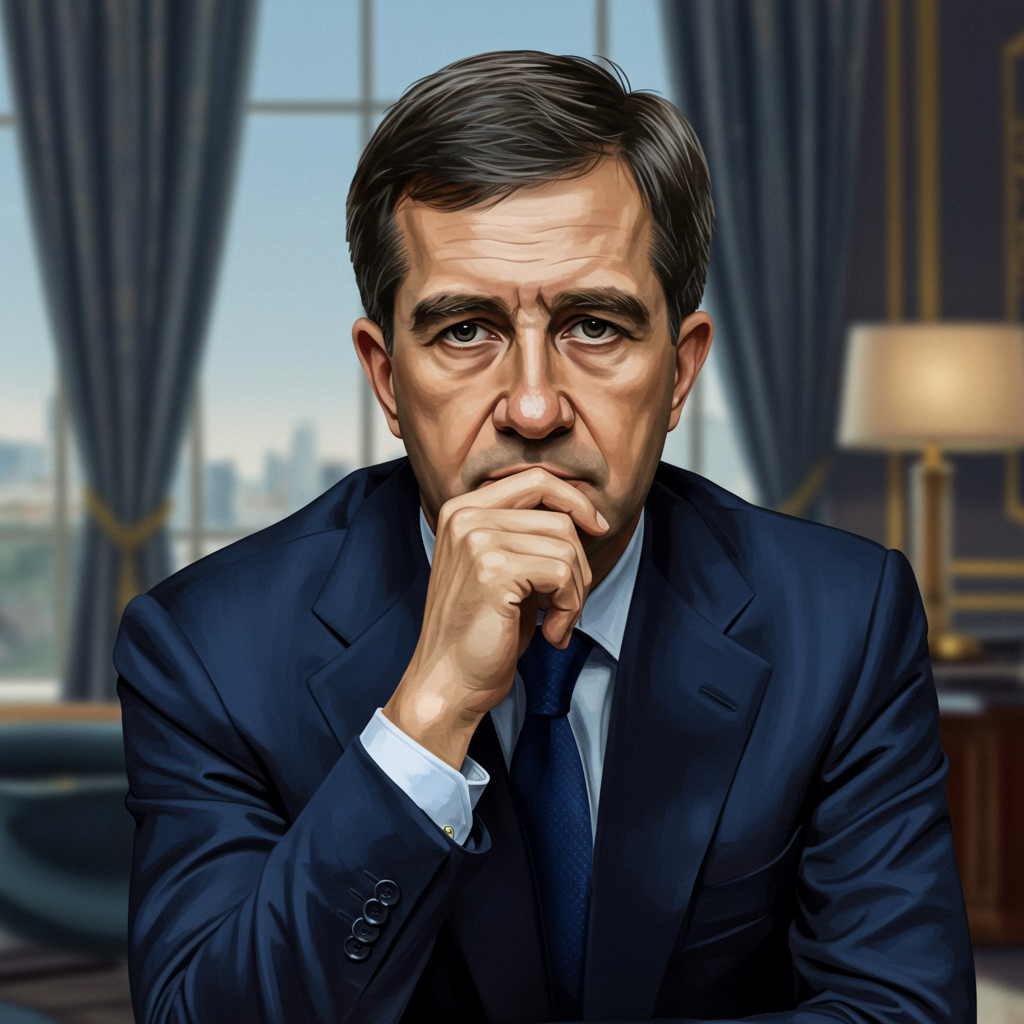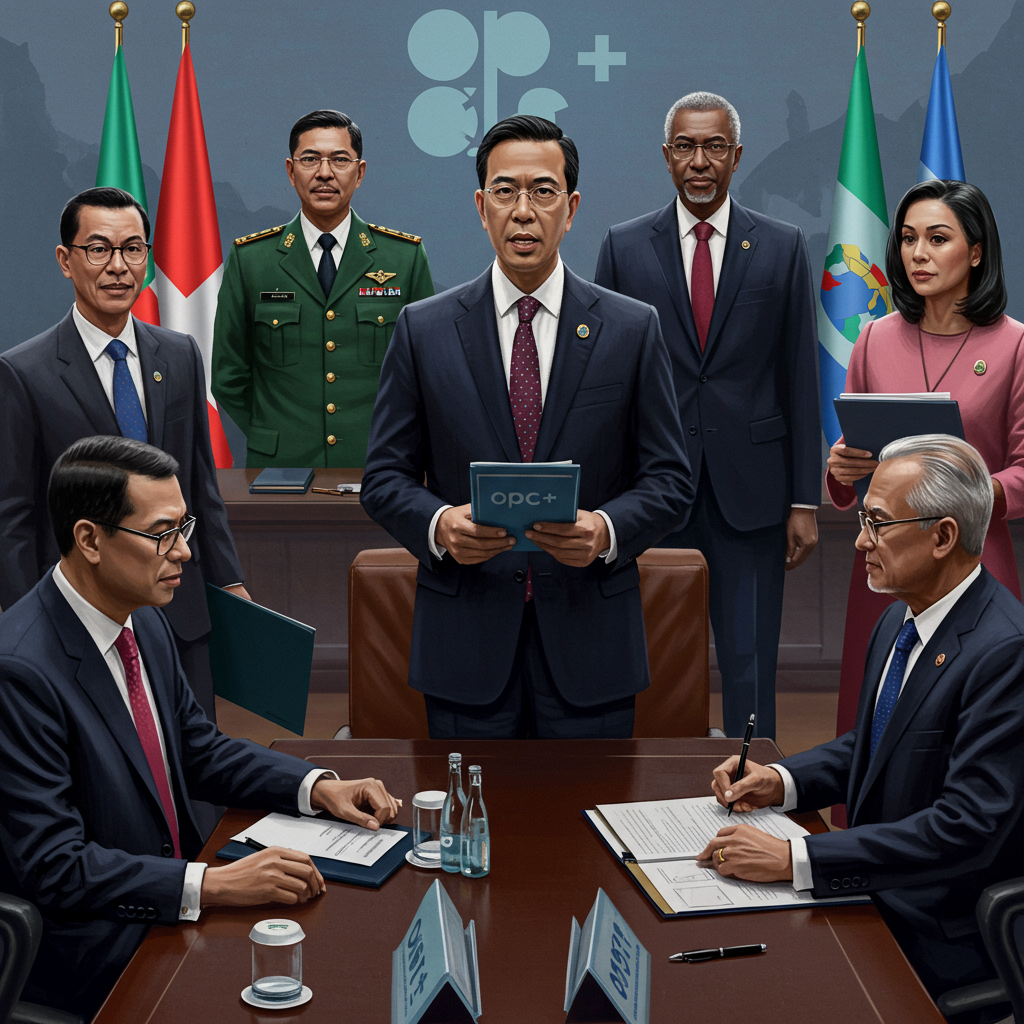Treasury Secretary Scott Bessent has signaled a potential openness to a significant new role. Asked recently about the possibility of replacing current Federal Reserve chair Jerome Powell, Bessent offered a concise reply. He stated he would follow president Trump’s wishes regarding the powerful central banking position.
This comment adds Bessent’s name firmly to the list of individuals reportedly being considered for the Fed’s top job. It underscores the ongoing political maneuvering surrounding the future leadership of the nation’s central bank.
Bessent’s Stance on the Fed Chair Role
Speaking in a television interview, Treasury Secretary Scott Bessent addressed speculation about his future. He was asked directly about whether he would want the job of Federal Reserve Chair. While expressing satisfaction with his current duties leading the Treasury Department, Bessent did not hesitate in his response regarding the Fed role.
“I will do what the president wants,” Bessent said. This statement indicates a willingness to take on the critical position if nominated by President Trump. The comment highlights the close relationship between the Treasury Secretary and the White House. It also signals that while content with his current portfolio focusing on tax cuts, trade deals, and economic policies, Bessent remains available for a presidential appointment.
The Backdrop: Trump’s Push for a New Fed Leader
President Trump has made clear his desire to see a change in leadership at the Federal Reserve. This push stems largely from persistent disagreements over monetary policy. Trump has been a vocal critic of current Chair Jerome Powell. He has repeatedly called for the Fed to implement lower interest rates.
Powell’s term as Federal Reserve Chair is set to conclude in May 2026. The President is reportedly looking to name his preferred successor well before that date. Some reports suggest an announcement could come as early as this fall or even sooner. Announcing a nominee early could potentially diminish the authority of the sitting chair during the remainder of their term.
Tension Over Interest Rates and Inflation
The primary point of contention between President Trump and Chairman Powell has centered on interest rates. Trump argues that current rates are too high. He believes significantly lower rates are necessary to stimulate the economy and reduce government borrowing costs. He has claimed lower rates could save the U.S. “Hundreds of billions of dollars.” Trump has also publicly contended that the U.S. currently has “LOW inflation.”
Conversely, the Federal Reserve, under Powell, has maintained a stance of holding rates steady. Central bankers have expressed caution regarding inflation risks. Specifically, the Fed has cited the potential impact of President Trump’s tariffs on consumer prices. Economists are assessing where tariff costs will ultimately be borne in various supply chains. These costs could impact manufacturers, importers, or potentially be passed directly onto consumers, driving prices higher. The Fed has suggested keeping interest rates at current levels provides a buffer against such inflationary pressures.
Trump has used strong language to criticize Powell’s stance. Social media posts have reportedly referred to Powell using terms like “the WORST” and “a real dummy.” A handwritten note shared by Trump reportedly criticized Powell for being “too late” and costing the USA “A fortune.” He urged Powell to “lower the rate — by a lot.” This public pressure highlights the unusual tension between the White House and the independent central bank.
Potential Candidates Emerge
Scott Bessent is not the only individual reportedly under consideration for the Federal Reserve Chair position. Several other prominent names have been mentioned in Washington policy circles. These individuals are typically evaluated based on their economic views and potential alignment with the President’s monetary policy goals, particularly on interest rates.
Potential candidates include:
Christopher Waller: A current member of the Federal Reserve Board of Governors.
Michelle Bowman: Also a current member and Vice Chair of Supervision at the Fed.
Kevin Hassett: Director of the White House National Economic Council.
Kevin Warsh: A former member of the Federal Reserve Board of Governors.
- David Malpass: Former World Bank President.
- www.thedailybeast.com
- www.washingtonexaminer.com
- www.benzinga.com
- finance.yahoo.com
President Trump has indicated he has narrowed his list of potential nominees. While mentioning names like Warsh favorably in the past, reports suggest the list remains fluid. The chosen candidate is widely expected to share Trump’s preference for lower interest rates compared to the current Fed stance.
The “Shadow Chair” Discussion
The possibility of an early announcement for the next Fed Chair has led to discussions about a “Shadow Chair.” This concept involves naming a successor well before the current chair’s term ends. The aim would be to reduce the influence of the sitting chair and potentially signal future monetary policy direction in advance.
Treasury Secretary Bessent has reportedly played down concerns about this approach. However, the idea has been floated by others close to the administration as a strategic move. Proponents argue that the focus should be on the economic consequences of the Fed’s actual rate decisions, not on the timing of a personnel announcement. Critics might argue such a move could create uncertainty or undermine the Fed’s independence.
Economic Debate Over Rate Policy
The debate over interest rates involves complex economic considerations. President Trump has advocated for significantly lower rates, suggesting a range of 1% or 2%. He has also reportedly proposed a “bills over bonds” strategy for managing U.S. debt. This involves issuing more short-term Treasury bills at potentially lower rates instead of longer-term bonds.
However, some economic experts caution against these ideas. Critiques suggest a strategy focusing heavily on short-term debt could have negative consequences. Concerns have been raised about potential instability or risks to the U.S. Dollar’s value. Other economists argue that pressuring the Fed to lower rates, even if successful politically, could paradoxically lead to higher long-term bond yields. This could happen by potentially “de-anchoring inflation expectations” – making markets less confident that the Fed will keep inflation under control in the future. The Federal Reserve, for its part, bases its decisions on economic data and its dual mandate of maximizing employment and maintaining price stability.
Tariffs and Trade Context
The backdrop of the interest rate debate includes the economic impact of U.S. trade policy. President Trump’s administration has implemented tariffs on goods from key trading partners. The original article mentions that U.S. tariff levels on China are reportedly set around 55% overall, including those from the first Trump term. The overall U.S. tariff rate is cited at 14.1%.
Treasury Secretary Bessent has also commented on upcoming trade negotiations. He mentioned expectations for a “flurry” of additional trade deals. This activity highlights the administration’s focus on trade policy. The economic effects of these tariffs and trade deals remain a factor the Federal Reserve considers when evaluating inflationary pressures and the overall economic outlook.
Frequently Asked Questions
What did Scott Bessent say about becoming Federal Reserve Chair?
Treasury Secretary Scott Bessent stated that he would be open to becoming the next Federal Reserve Chair if President Trump asks him to take the job. In a TV interview, he said, “I will do what the president wants,” regarding the position. While expressing satisfaction with his current role as Treasury Secretary, this comment indicates his availability for the Fed leadership role if nominated.
Who are the other potential candidates for Fed Chair besides Scott Bessent?
Several other individuals are reportedly being considered as potential successors to current Fed Chair Jerome Powell. These include current Fed Board members Christopher Waller and Michelle Bowman, White House National Economic Council Director Kevin Hassett, former Fed Governor Kevin Warsh, and former World Bank President David Malpass. President Trump has indicated he has narrowed his list of candidates.
Why does President Trump want to replace Jerome Powell as Federal Reserve Chair?
President Trump’s desire to replace Jerome Powell stems primarily from disagreements over interest rate policy. Trump believes the Federal Reserve has kept interest rates too high, harming economic growth and increasing government borrowing costs. He has repeatedly called for significantly lower rates, arguing that inflation is low. The Fed, however, has maintained rates, citing concerns about inflation, particularly the potential impact of tariffs.
Conclusion
Treasury Secretary Scott Bessent’s comment signals his potential availability for the critical role of Federal Reserve Chair. His statement adds to the ongoing speculation surrounding who might replace Jerome Powell under a potential Trump administration. The core tension remains the President’s strong desire for lower interest rates conflicting with the Federal Reserve’s current monetary policy stance, which is guided by economic data and concerns about inflation, including the effects of tariffs. As President Trump considers potential nominees, the debate over the Fed’s independence and the direction of monetary policy will undoubtedly continue. The decision on the next Fed Chair will have significant implications for the U.S. economy.



